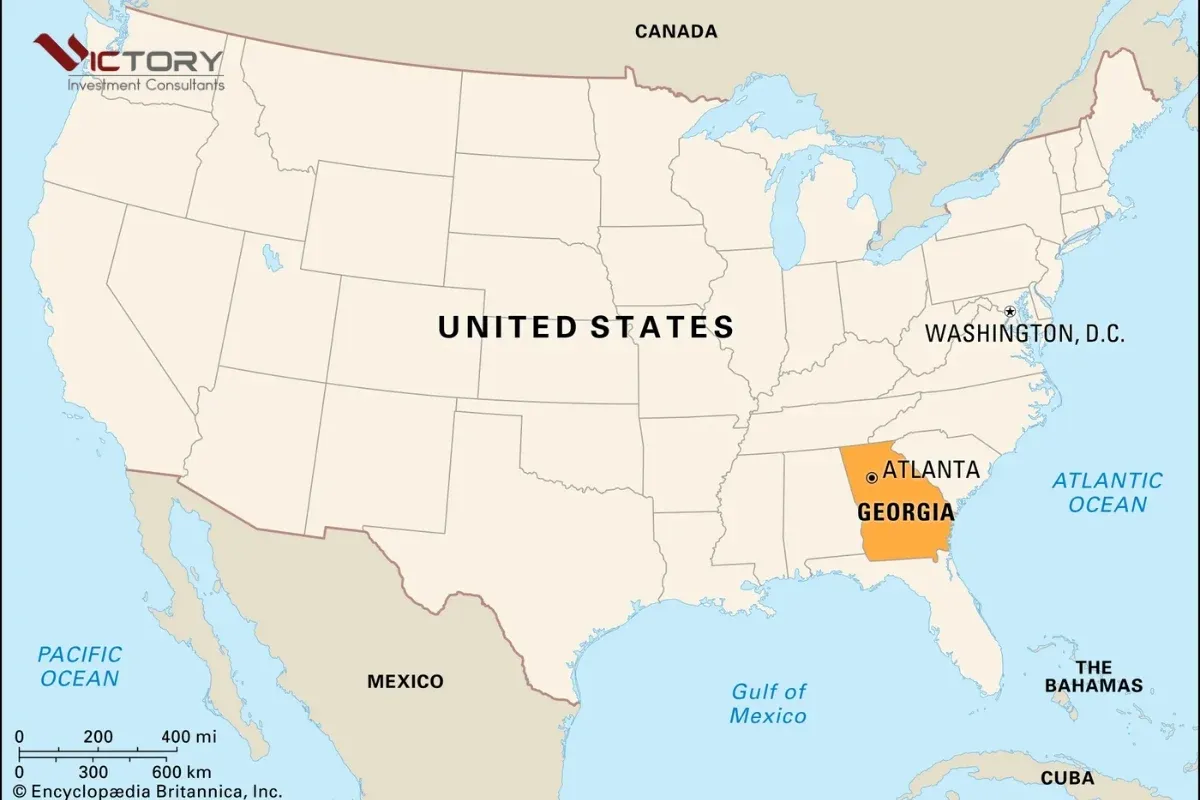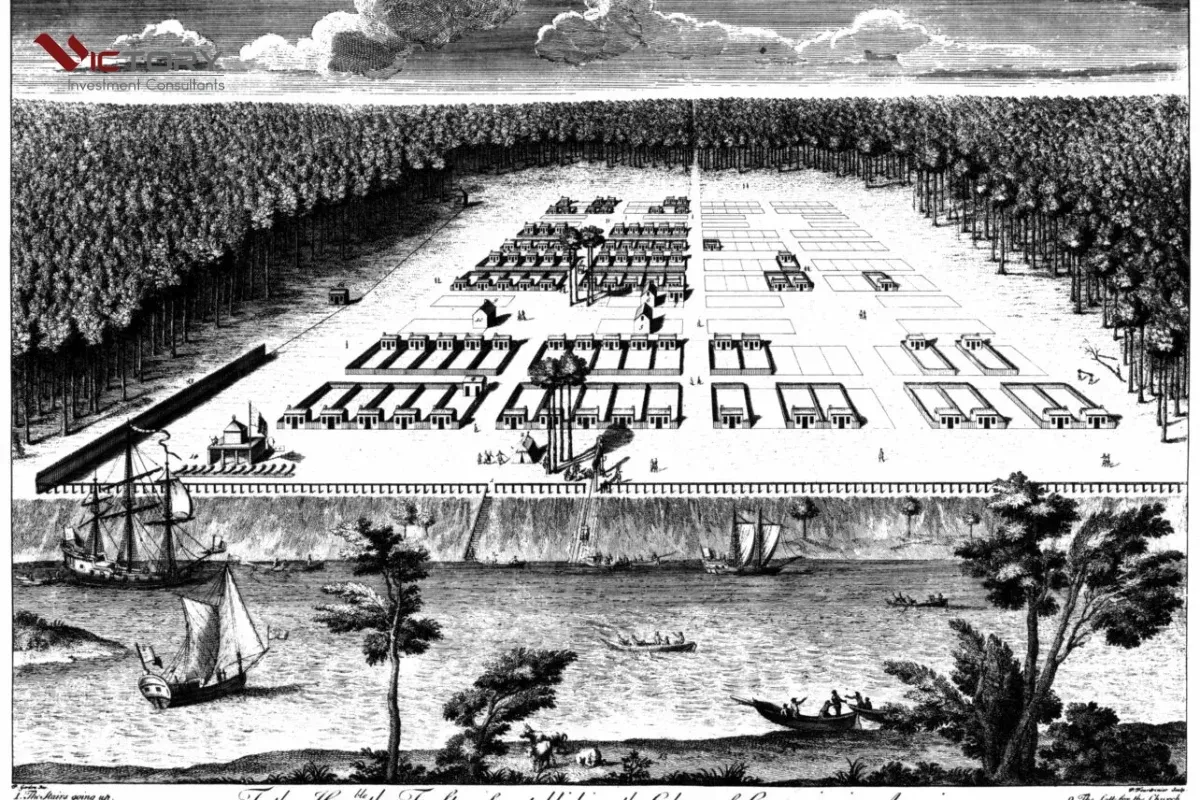Georgia, a Southern state in the US, rich in natural beauty and unique culture, is not only an attractive tourist destination but also a treasure trove of history, especially the deep imprints of the American Civil War. From fierce battles that shook the nation to historical relics that remain, Georgia carries the tragic story of a crucial period in American history. Join Discovery To Wonders to explore the history of the American Civil War in Georgia and the battlefields that have become witnesses to this heroic and painful past.
Georgia and the Civil War: A Historical Overview
The American Civil War (1861-1865) was the bloodiest conflict in US history, dividing the country into two factions: the Northern Union and the Southern Confederacy. Georgia, with its agricultural economy dependent on slavery, joined the Confederacy and became one of the key battlegrounds of the war.
Georgia’s strategic location, with its important railway network and Atlanta as the industrial and logistical center of the South, made the state a prime target for the Union army. Throughout the war, Georgia witnessed many major battles, devastating campaigns, and heavy destruction. These events not only shaped the state’s history but also left a profound cultural and historical legacy, attracting visitors to explore and learn about its turbulent past.
The Atlanta Campaign: The Center of Conflict
The Atlanta Campaign, from May to September 1864, was one of the decisive military campaigns of the Civil War. Union General William Tecumseh Sherman led his army to attack Atlanta, a city known as the “Heart of the Confederacy.” Sherman’s goal was not only to capture Atlanta but also to destroy the South’s military and economic infrastructure, weakening the enemy’s ability to fight.
This campaign included several fierce battles around Atlanta, such as the Battle of Peachtree Creek, the Battle of Atlanta, and the Battle of Jonesboro. The Confederate army, under the command of Generals Joseph E. Johnston and later John Bell Hood, resisted fiercely but eventually had to retreat. On September 2, 1864, Atlanta fell, marking a significant turning point in the war and contributing greatly to the Union’s final victory.

Chickamauga: A Bloody Confederate Victory
The Battle of Chickamauga, fought in September 1863 near the border of Georgia and Tennessee, was one of the bloodiest battles and had the highest casualties in the Western Theater of the Civil War. Although it took place outside Georgia, Chickamauga is significant to the Civil War history in this state because it paved the way for subsequent campaigns in Georgia.
In this battle, the Confederate army under General Braxton Bragg won a major victory against the Union army led by General William Rosecrans. However, this Confederate victory was more tactical than strategic and could not change the overall course of the war. Chickamauga is still remembered as a testament to the brutality and immense losses of the Civil War.
Sherman’s March to the Sea: A Trail of Destruction
After capturing Atlanta, General Sherman continued his devastating campaign known as “Sherman’s March to the Sea.” From November to December 1864, the Union army conducted a sweep through Georgia, from Atlanta to Savannah on the Atlantic coast.
The goal of this march was to completely destroy the military, economic, and psychological infrastructure of the Confederacy. Sherman’s army burned plantations, factories, railroads, and bridges along the way, causing widespread devastation and damage to Georgia. The city of Savannah surrendered to the Union army in December 1864, ending this controversial but decisive campaign. “Sherman’s March to the Sea” left deep scars on the people of Georgia and became an unforgettable part of American Civil War history.

Notable Civil War Sites and Battlefields in Georgia
Today, Georgia still preserves many relics and battlefields from the Civil War era, attracting history enthusiasts to explore and learn. Here are some notable sites:
- Chickamauga and Chattanooga National Military Park: Although most of the park is in Tennessee, part of the Chickamauga battlefield extends into Georgia. This park is one of the largest and best-preserved Civil War battlefield parks, with many monuments, forts, and hiking trails.
- Kennesaw Mountain National Battlefield Park: Located near Atlanta, this park preserves the battlefield of the Battle of Kennesaw Mountain, a crucial battle in the Atlanta Campaign. Visitors can explore trenches, fortifications, and admire battlefield views from the summit of Kennesaw Mountain.
- Atlanta History Center: The Atlanta History Center has a large exhibition on the American Civil War, including artifacts, documents, and stories about Atlanta during the war. Here, visitors can learn more about the Atlanta Campaign and the impact of the war on the city.
- Stone Mountain Park: Stone Mountain Park is not only famous for its massive granite rock but also features a large carving depicting Confederate leaders. The park also houses the Antebellum Plantation & Farmyard, which recreates life in the South before the war.
- Andersonville National Historic Site: Andersonville National Historic Site is the location of Andersonville Prison, a notorious Confederate prisoner-of-war camp where thousands of Union prisoners died due to terrible living conditions. This site is a poignant reminder of the brutality of war and human loss.

Conclusion
The history of the American Civil War in Georgia is an integral part of US history, carrying stories of courage, sacrifice, and immense loss. The battlefields and historical sites in Georgia are not only attractive tourist destinations but also living witnesses to a turbulent past.
When visiting Georgia, tourists can not only admire the beautiful natural scenery but also have the opportunity to deeply explore the history of the American Civil War, feel the resilient spirit of the local people, and reflect on valuable historical lessons. Let Discovery To Wonders accompany you on your journey to explore Georgia, a land that preserves the heroic and tragic historical imprints of America.